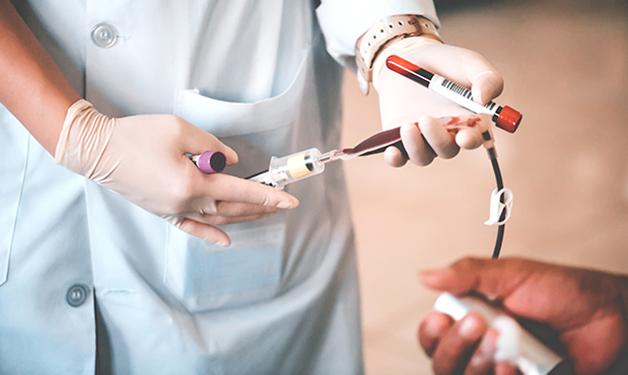
From antibodies to transfusions, Dr. Andrew Shih breaks down blood types and explains why the need for blood donors is crucial.
Q: What are the different blood types?
A: There are four different blood types, A, B, AB and O. A and B refer to the type of antigen or sugar on the surface of each cell. It’s crucial that if you have any kind of transfusion, you get the right type. If you are group A and you are transfused group B, your body is going to recognize the transfused blood as foreign and try to destroy it. This can set off a chain reaction in the immune system that can be fatal.
Outside of the four main groups are sub groups based on other minor antigens that result in positive or negative designations. There are a few hundred of these, though only the most clinically significant ones are also screened for when verifying if a person has had an immune response to blood that could destroy transfused blood.
Q: What determines your blood type?
A: Blood types are determined by genetics and come from your parents. For example, you could inherit an A antigen from one parent and a B antigen from the other, which could result in an AB blood type.
Q: Why is it important to know my blood type if I am going to have a medical procedure?
A: In the hospital setting, we need to be sure of blood type and antibody response in case a patient might require a transfusion or any other blood product during surgery or care. If you have a routine procedure scheduled, you’ll receive a "group and screen" test to find your specific blood group and monitor your immune response to ensure you receive appropriately matched blood.
Q: What happens if I need an immediate blood transfusion, but I don’t know my blood type?
A: If we don’t know a patient’s blood type and there isn’t time to test for it, such as in the event of a major trauma or massive bleed, we give the recipient group O blood. O negative is the one blood type that can be accepted by all patients, no matter their type. It’s for that reason that people who have O negative blood are called universal donors. Because it can be used on any patient, O negative blood is in high demand for hospitals. However, only seven per cent of donors have O negative blood1, where nearly twice as many transfusions are group O negative. Repeated donations threaten to make group O negative donors iron deficient and eventually anemic, which is why we sometimes use group O positive blood in major traumas and massive bleeds at times.
Q: Should I donate blood, even if I’m not O negative?
A: Yes! In general, the number of blood donors is decreasing, and we need all different blood types to meet specific group needs. Also, we are now using more and more products made from the liquid part of the blood—the plasma—such as albumin, clotting factors, and intra-venous immunoglobulin. These products help in a range of ways, from boosting blood volume in some scenarios to stemming bleeding in conditions like hemophilia, to preventing infection. Unfortunately, we can only meet one third of our need for plasma products from Canadian donors. We have to purchase the other two thirds of plasma products from other countries. If we can increase donors across the board, we could be more self-sufficient and also save the health system quite a bit of money. Some blood donors, especially ethnically diverse donors, may also have rarer blood types which are important to have on hand for patients that need it. For information about becoming a blood donor, visit Canadian Blood Services.
Q: Do mistakes ever happen with blood types and transfusions?
A: It’s rare. But in blood banking, ensuring the right blood gets to the right patient is the most important part of our job and we work hard to prevent mistakes from occurring. In the near future we hope to utilize a state-of-the-art verification system called Positive Patient Identification or PPID, which will incorporate a barcoding system to make sure blood samples are taken from the right patient and also to scan each bag of blood and match it to each individual patient so the right patient gets the right blood. Failures to do this lead to life-threatening adverse events.



